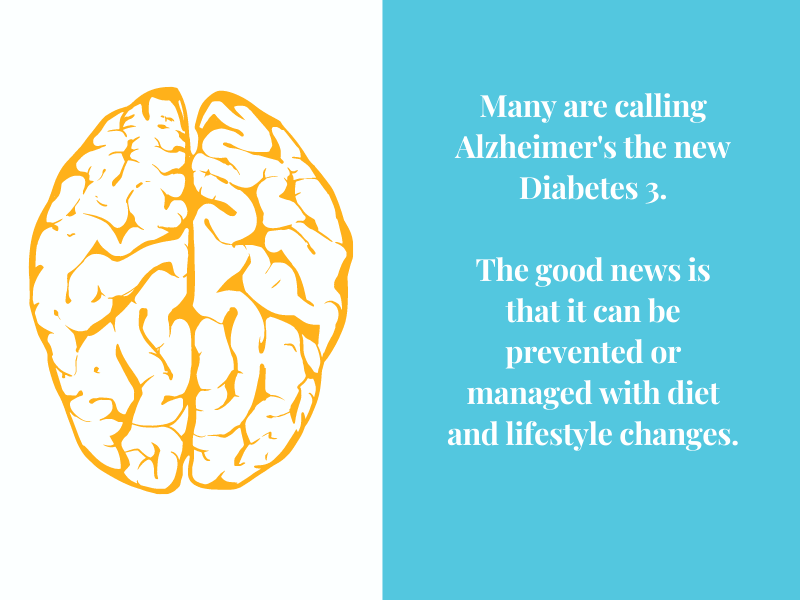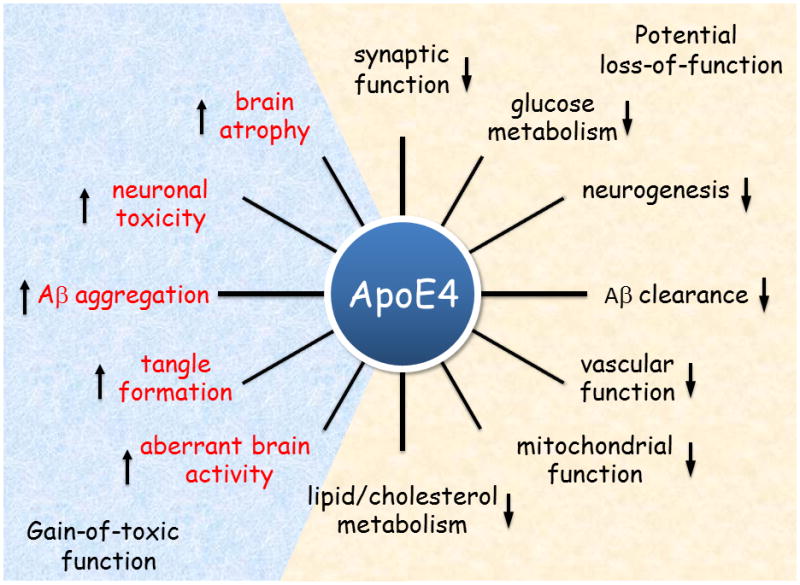Author :

Does Alzheimer’s run in your family? Did you know just one variation of the APOE E4 genotype can double your risk of developing Alzheimer’s?
The APOE gene is one of the most researched and studied genes related to an increased risk of developing late-onset Alzheimer’s.
Researchers estimate that between 40-65% of people diagnosed with late-onset Alzheimer’s disease have the APOE gene, particularly the APOE E4 genetic variant. However, having APOE E4 does not mean that a person will develop the disease. Some people with an APOE E4 allele never get the disease, and others who develop Alzheimer’s do not have any APOE E4 alleles.
The good news is we are learning every day about how diet and exercise can reduce the risk. You can proactively manage your health and help to ensure these genes are not expressed. There are now APOE diets that help reduce plaquing. Many are calling Alzheimer’s the new Diabetes 3 and it can be managed.
With new understandings of the human genome and particular genes that increase the likelihood of disease development, such as the APOE gene, we can make informed and personalized decisions related to our diet and lifestyle to prevent chronic disease as we age.
So, what does having the APOE gene mean for you and your health? First off, let’s explore the function of APOE and how it relates to your brain health.
The APOE gene is responsible for the apolipoprotein E (APOE) protein’s role in carrying cholesterol across different tissues and cells, supporting fat transportation and injury repair in the brain.
Most notably, the APOE gene is studied for its function in clearing amyloid-beta, a component of plaque found in the arteries, concerning Alzheimer’s risk.
To understand your genetic Alzheimer’s risk, you must find out what your APOE genotype combination is.
There are three APOE gene variations or genotypes: APOE E2, APOE E3, APOE E4. Since genes come in matching pairs – you inherit two copies of every gene, one from each parent – with six possible combinations of pairs.
For example, if you received an E3 genotype from each parent, your genotype combination would be E3/E3.
Listed here are all the possible pairs of APOE genotype combinations you may have: E2/E2, E2/E3, E2/E4, E3/E3, E3/E4, or E4/E4.
The E2 genotype is the rarest form of APOE. Just one copy of the E2 genotype appears to reduce the risk of developing Alzheimer’s by up to 40%. However, this is rare, and only 1% of the population has the E2/E2 combination.
APOE E3 is the most common genotype, which doesn’t seem to influence Alzheimer’s risk all that much – it plays a neutral role in the disease. 64% of the general population have the E3/E3 combination.
Having just one copy of the E4 genotype can increase your risk by two to three times. Having two copies (E4/E4) can increase your risk by 12 times. About 10% of the general population carry one copy of the E4 genotype, and 5% carry two copies.
It is crucial to identify your APOE genotype combination, as it dictates how the APOE protein handles cholesterol transport. In other words, how well your body clears plaque in the brain is impacted by your APOE genotype.
APOE E2 seems to clear amyloid-beta more effectively than APOE E4 – with APOE E3 in the middle.
The difference in the effectiveness of plaque clearing outlines what researchers call “loss of function” toxicity and “gain of toxic function” activities, such as brain atrophy or an increased response to stress and injury.
APOE4 may increase the risk of Alzheimer’s through toxic gain of function and the loss of normal healthy brain function.

Don’t fret – even though you may have an increased chance of developing Alzheimer’s, having the APOE E4 gene variation can be managed.
In fact, a healthy and individualized approach to diet, exercise and lifestyle can switch your genetic risk factor for Alzheimer’s “off.” The field of epigenetics is proof that such factors can alter your cell’s DNA in ways that affect gene activity.
Specific diet and lifestyle factors can help reduce your risk of developing late-onset Alzheimer’s disease, especially if you have one or two copies of the APOE E4 genotype.
With the right foods coupled with a gene-supportive environment, you can prevent the expression of your APOE E4 genes. Reduce saturated fats and sugar. Eat more of a Mediterranean diet or plant-based diet. Focus on a diet rich in anti-inflammatory omega-3 oils, including

Evidence shows that just 30 minutes of moderate exercise per day may decrease the risk of developing Alzheimer’s disease.
The body-mind connection plays a vital role in the overall health of your bodily functions. To foster a healthy mindset,
Regularly engage in simple brain exercises and cognitive activities such as,

Alzheimer’s is a life-changing disease for the person with the disease and their friends, family, and caretakers.
With today’s affordable scientific tools to analyze your genotype, you can easily learn your personal APOE gene recipe to mitigate your chances of developing this debilitating disease. Using simple and attainable diet and lifestyle changes to manage your help, to ensure your APOE genes are not expressed in a harmful way.
While there is still a lot to learn about the thousands of genes that have yet to be studied, we can make use of the ones that we do understand – like the APOE gene – to make individualized and supportive decisions for your specific genetic type.
Unlock the full potential of your health with dnaPower. Since 2008, we’ve empowered individuals to make smarter, data-driven health decisions. Discover the most comprehensive DNA testing for health and wellness today.